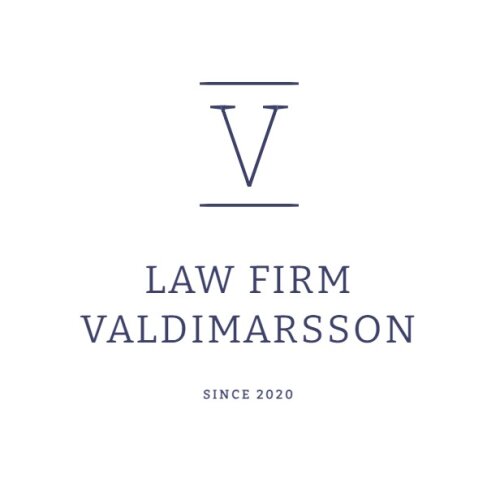Best Constitutional Law Lawyers in Iceland
Share your needs with us, get contacted by law firms.
Free. Takes 2 min.
Or refine your search by selecting a city:
List of the best lawyers in Iceland
About Constitutional Law in Iceland
Constitutional Law in Iceland is governed by the Constitution of the Republic of Iceland, which was adopted on June 17, 1944, when Iceland became an independent republic. The Constitution sets out the country’s fundamental legal framework, outlining the structure of the government, the powers of different branches, and the basic rights and liberties of its citizens. Iceland’s Constitution emphasizes democratic governance, the rule of law, and human rights, similar to many contemporary constitutional democracies.
Why You May Need a Lawyer
Individuals may require legal assistance in Constitutional Law in various situations. Common reasons include:
- Challenges to the constitutionality of laws, government actions, or policies.
- Issues related to civil liberties and human rights violations.
- Legal disputes regarding election processes or political rights.
- Matters concerning the interpretation or amendment of the Constitution.
- Seeking remedies for governmental abuse or misinterpretation of constitutional provisions.
Given the complexity of Constitutional Law, professional legal assistance is often necessary to navigate these issues effectively.
Local Laws Overview
The key aspects of local laws related to Constitutional Law in Iceland include the following:
- Separation of Powers: The Constitution ensures separation between the executive, legislative, and judicial branches.
- Human Rights: Icelandic law upholds freedom of expression, assembly, religion, and the right to privacy, as reflected in the Constitution and aligned with international human rights conventions.
- Amendment Process: The Constitution outlines specific procedures for amendments, which require parliamentary approval and, in some cases, public referenda.
- Democratic Principles: Iceland is a representative democracy, and its constitutional laws are deeply rooted in ensuring fair and free elections and protecting voter rights.
- Judicial Review: Courts have the authority to interpret the Constitution and ensure laws are consistent with constitutional principles.
Frequently Asked Questions
What is the process for amending the Icelandic Constitution?
Amending the Icelandic Constitution involves the approval of two consecutive parliaments and, in some cases, a national referendum. This process ensures comprehensive consideration and public involvement.
How does Iceland ensure the protection of human rights?
The Constitution guarantees fundamental human rights, which are upheld through legislative measures and judicial oversight. Iceland is also a signatory to international treaties, such as the European Convention on Human Rights, further strengthening human rights protections.
Who has the authority to interpret the Constitution in Iceland?
The judiciary in Iceland has the authority to interpret the Constitution. Courts can review laws and government actions to ensure their compatibility with constitutional principles.
Can citizens challenge the constitutionality of a law?
Yes, citizens can challenge the constitutionality of a law in Iceland's courts. Legal counsel is highly recommended to navigate such complex proceedings effectively.
What role does the President of Iceland play in Constitutional Law?
The President of Iceland has a largely ceremonial role, but they have the power to refuse to sign a bill into law, thereby triggering a national referendum.
Are there any restrictions on freedom of assembly in Iceland?
While the Constitution protects freedom of assembly, certain restrictions apply, particularly concerning public order and safety. These limits are subject to strict scrutiny to ensure they are justifiable and lawful.
What rights do political parties have under the Icelandic Constitution?
Political parties have the right to participate in free and fair elections, promote their policies, and operate without undue restriction, all within the framework of the democratic process outlined in the Constitution.
How can I access court decisions related to Constitutional Law?
Court decisions, especially those from higher courts like the Supreme Court, are often published and can be accessed through official judicial websites or legal databases in Iceland.
What legal protections exist against the abuse of power by government officials?
Constitutional provisions ensure checks and balances among government branches to prevent abuse. Legal avenues, such as judicial review and ombudsmen services, protect citizens' rights against governmental misconduct.
What recourse do citizens have if they believe their constitutional rights have been violated?
Citizens can file a legal complaint through the judicial system. Engaging an experienced Constitutional Law lawyer is advisable to facilitate appropriate legal action and seek remedies.
Additional Resources
For further assistance, consider reaching out to:
- Ministry of Justice: Responsible for legal affairs and legislative work in Iceland.
- The Icelandic Bar Association: Can provide information on legal professionals and their expertise.
- University Law Faculties: Offer academic insights into Icelandic Constitutional Law.
- Human Rights Centre in Iceland: Provides resources and advocacy on human rights issues.
- Ombudsman’s Office: Assists with complaints about administrative decisions.
Next Steps
If you require legal assistance in Constitutional Law, consider the following steps:
- Consult with a qualified Constitutional Law lawyer in Iceland to discuss your case specifics.
- Gather all relevant documents and information related to your legal issue.
- Educate yourself on your constitutional rights and the legal processes pertinent to your case.
- Explore available resources and support organizations mentioned above for further guidance.
Taking timely and informed action can significantly impact the resolution of constitutional legal matters in Iceland.
Lawzana helps you find the best lawyers and law firms in Iceland through a curated and pre-screened list of qualified legal professionals. Our platform offers rankings and detailed profiles of attorneys and law firms, allowing you to compare based on practice areas, including Constitutional Law, experience, and client feedback.
Each profile includes a description of the firm's areas of practice, client reviews, team members and partners, year of establishment, spoken languages, office locations, contact information, social media presence, and any published articles or resources. Most firms on our platform speak English and are experienced in both local and international legal matters.
Get a quote from top-rated law firms in Iceland — quickly, securely, and without unnecessary hassle.
Disclaimer:
The information provided on this page is for general informational purposes only and does not constitute legal advice. While we strive to ensure the accuracy and relevance of the content, legal information may change over time, and interpretations of the law can vary. You should always consult with a qualified legal professional for advice specific to your situation.
We disclaim all liability for actions taken or not taken based on the content of this page. If you believe any information is incorrect or outdated, please contact us, and we will review and update it where appropriate.
Browse constitutional law law firms by city in Iceland
Refine your search by selecting a city.











